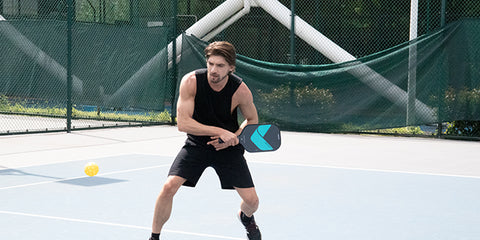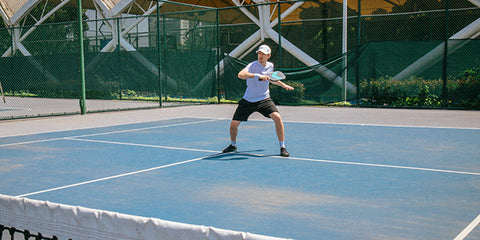With so many brands of paddles in the Pickleball market right now and the competition steadily increasing day by day. The drive to create something "different" is at an all-time high. As we learned from talking to the people responsible for designing and manufacturing the paddles. Even a small change in the design of a paddle can make a big difference when you're on the course. We have seen different weights, lengths, and head shapes. And now even a hole cut out from the front of the pickleball paddle to create an aerodynamic swing. The newest feature we've seen is the thickness of the paddle. before we get into the details. Here's a high-level overview of the different types of spatula thicknesses:
- Thin: 13 mm or less
- Standard: 14mm - 15mm
- Thickness: 16 mm or more
The thickness of the spatula is most often measured in millimeters. and they generally range from 11mm to 16mm, but we've seen some paddles outside of the standard, either thinner or thicker. out of the box When it hits the tape measure 19mm thick, adjusting the thickness of the paddle is a headache. But how does a thick paddle affect your game?

Paddles with a thicker core (16mm+) have the ability to cushion the impact of the ball. make that spatula This feeling is incredibly popular and something pickleball players are drawn to as we battle it out in the kitchen of 20+ shots. An irreplaceable feature of our paddles. Thick-core paddles generally weigh more than heavier paddles. Due to the special material needed to create the width of the paddle and due to the increased weight and increased thickness Stability and a larger sweet spot are also bonuses that thicker paddles offer too. If you find yourself missing the right spot a few times more than you'd like to admit. A spatula with a thicker core may be best for you. In summary, a thicker cored spatula is as follows:

A bigger and more forgiving sweet spot,overweight and superior stability. Another benefit of paddles with a thicker core is energy absorption that can extend your pickleball playing life (and career!). Tennis and golfer's elbows are two of the most common injuries you'll encounter. In pickleball (and racquet/paddle sports for that matter), the repetitive motion can damage your elbows and shoulders. and impact of golf balls As much as you enjoy the feeling of the ball on the paddle. It's not your friend. A thicker core paddle with added weight can provide the shock absorption you need to keep your body out of harm's way and prevent nagging injuries that keep you sidelined for weeks. A paddle with a thicker core absorbs the ball's energy so it travels less through the paddle and into the body. This could be a big selling point. This is especially true if you have had elbow tendonitis in the past.
If there is a disadvantage of a paddle with a thicker core. It has been shown to be able to "drag" through the air compared to thinner paddles. If you are looking for maximum maneuverability from your paddle. You may be steering in a thinner direction, but for us, the advantages of a paddle with a thicker core outweigh the disadvantages!
You have it! We hope this description of the Thick Pickleball Spatula was helpful.


